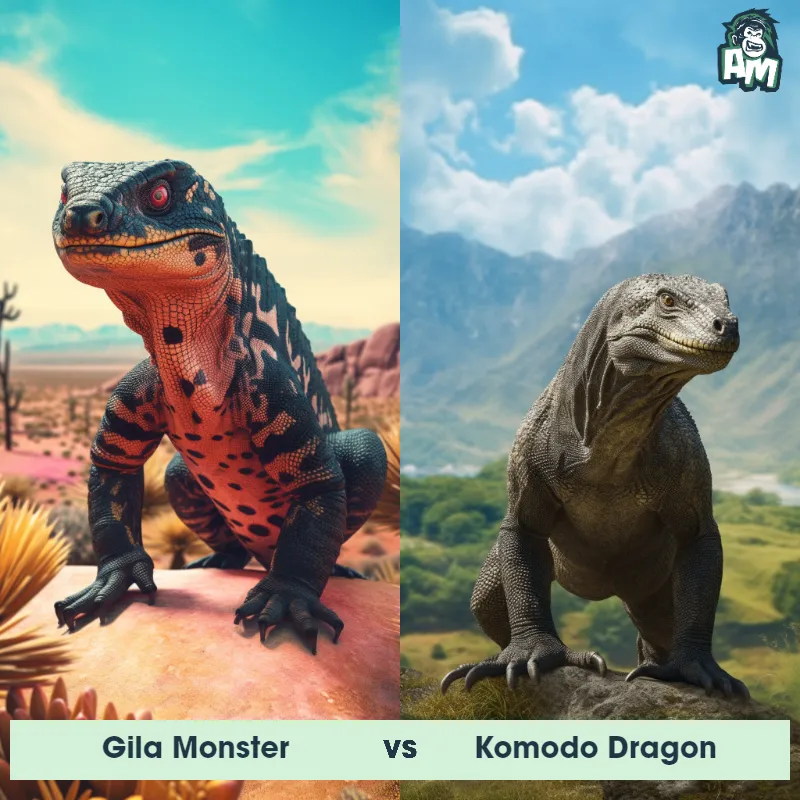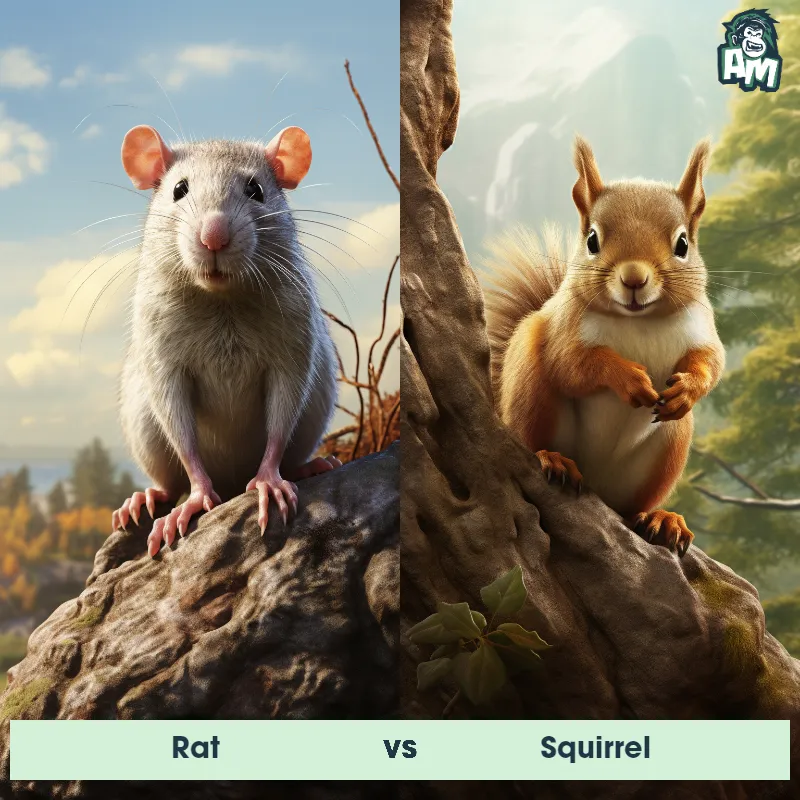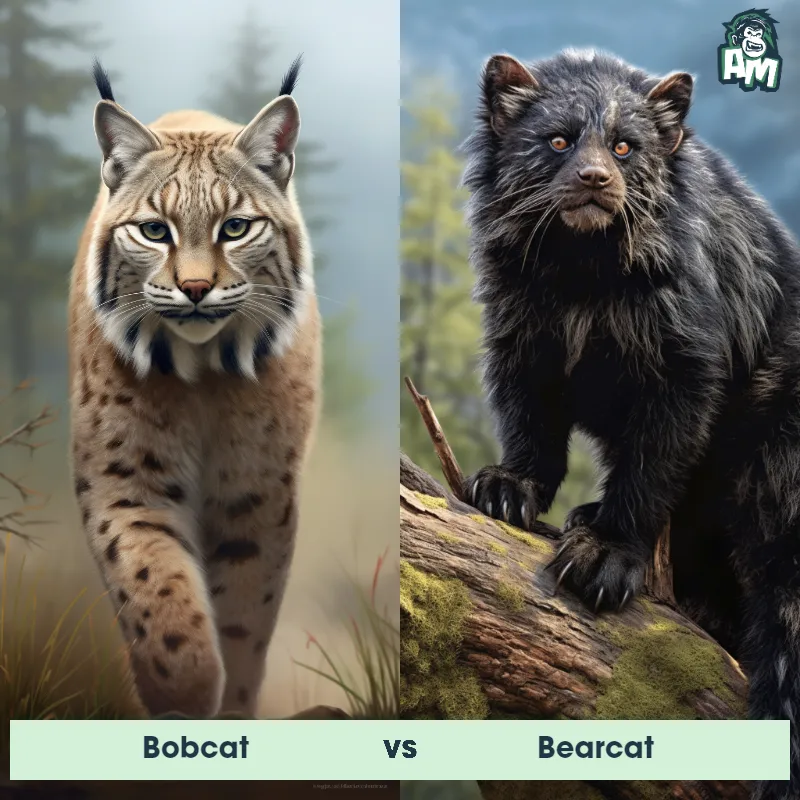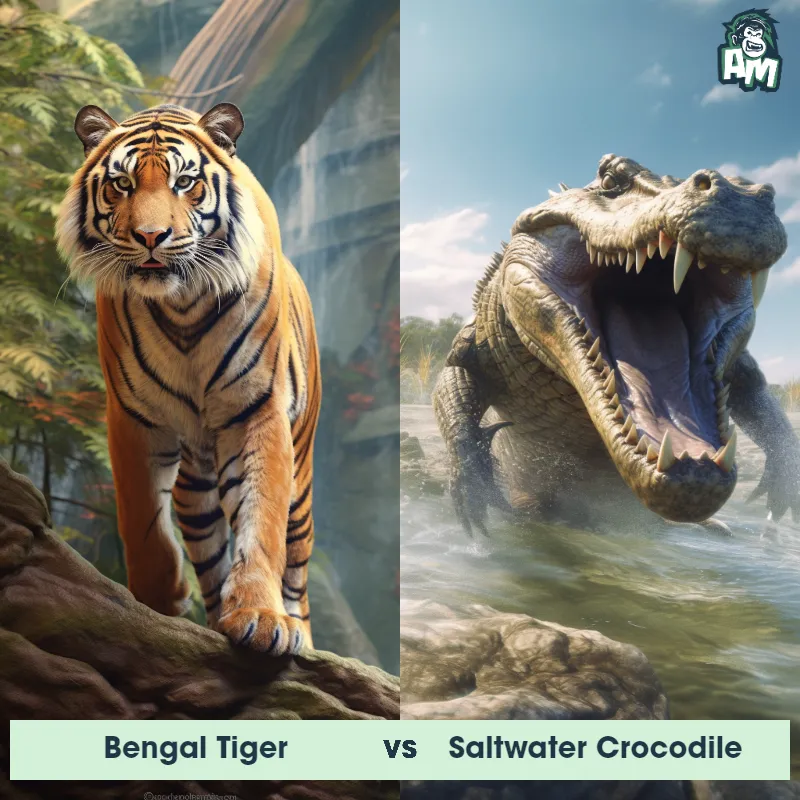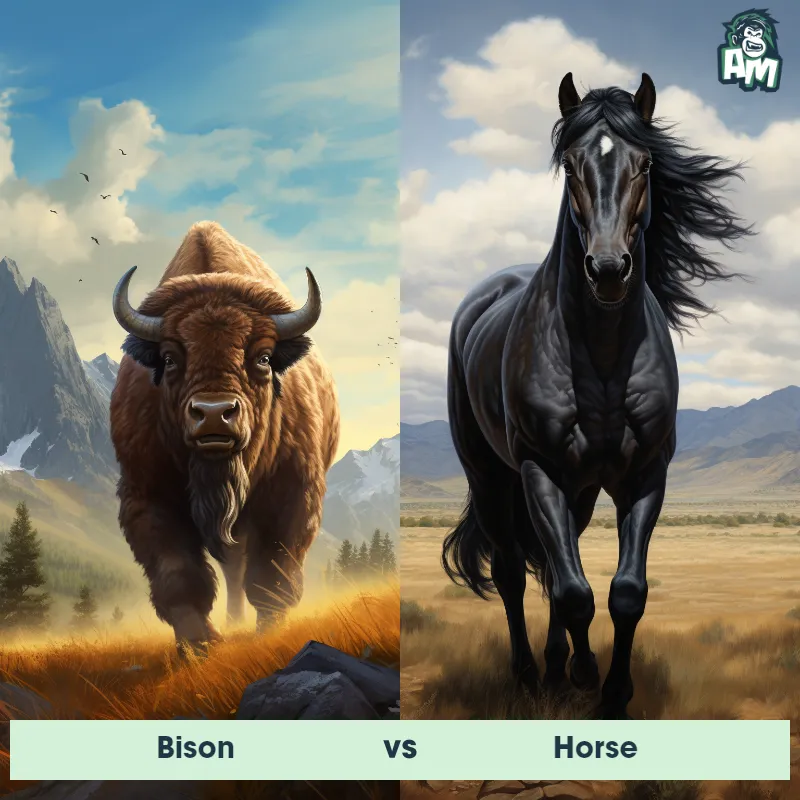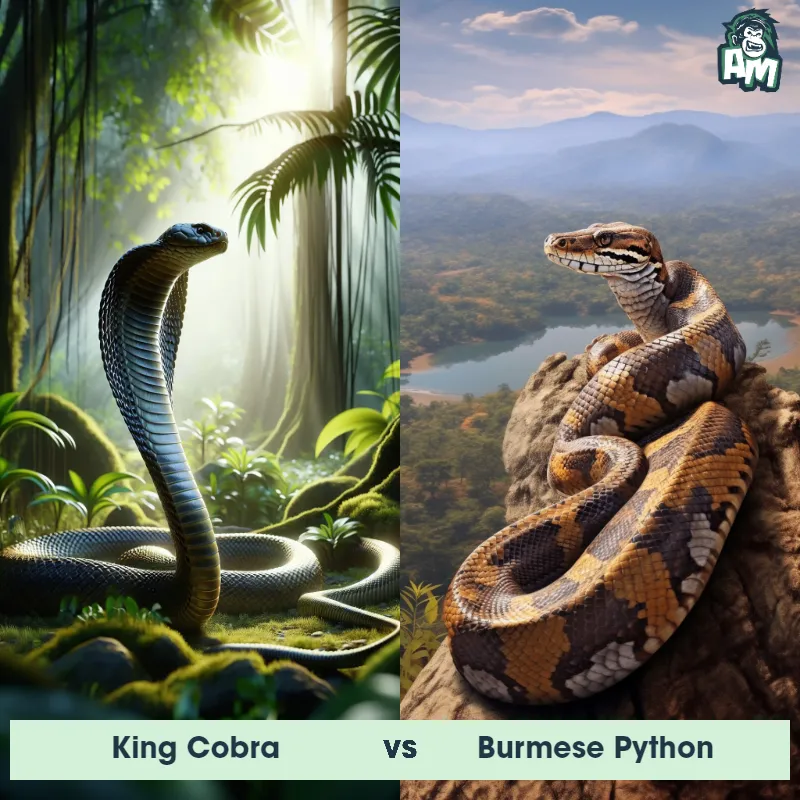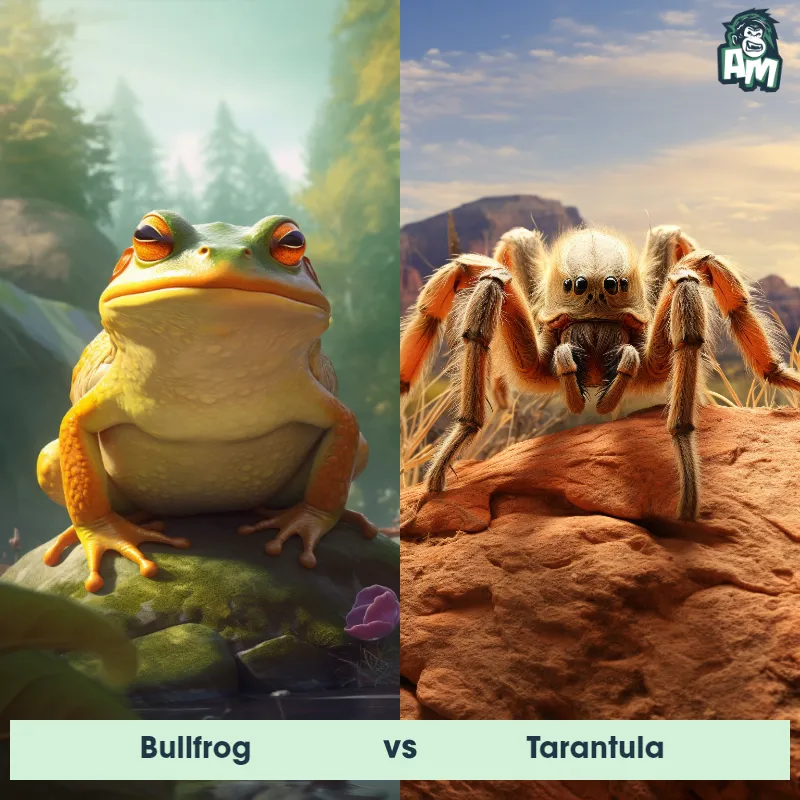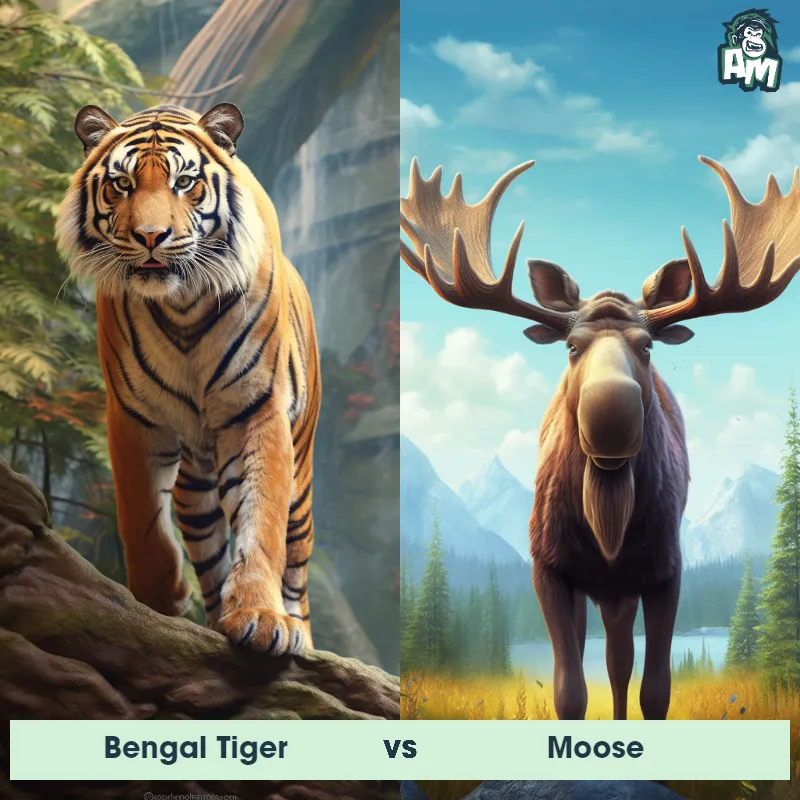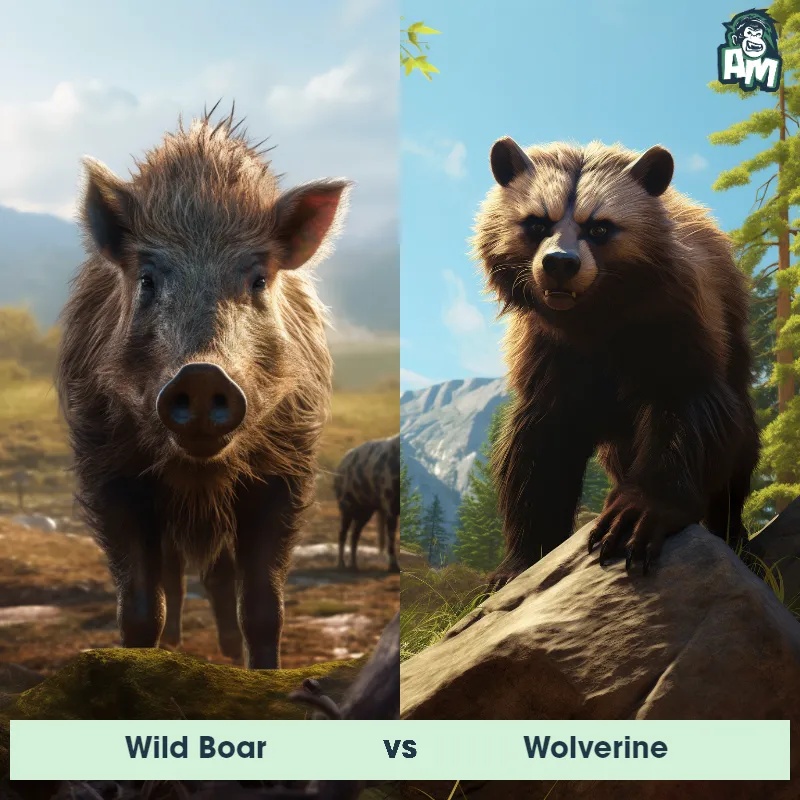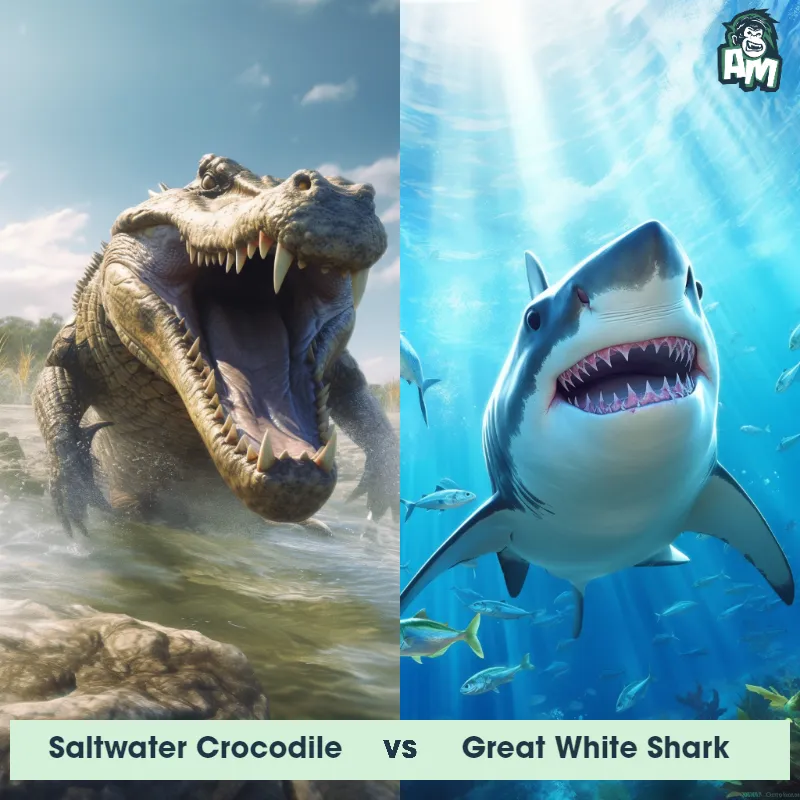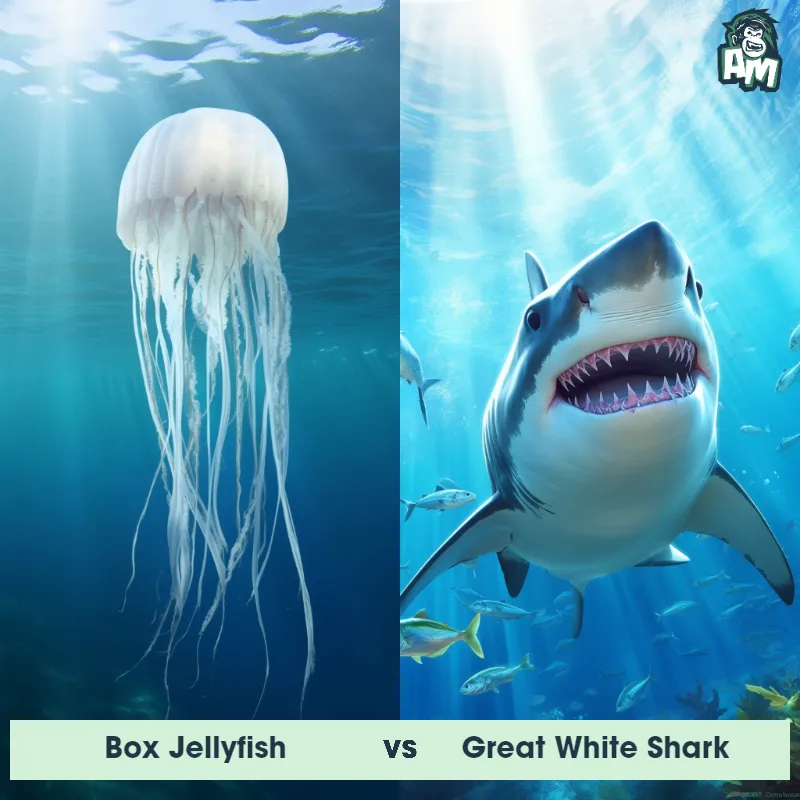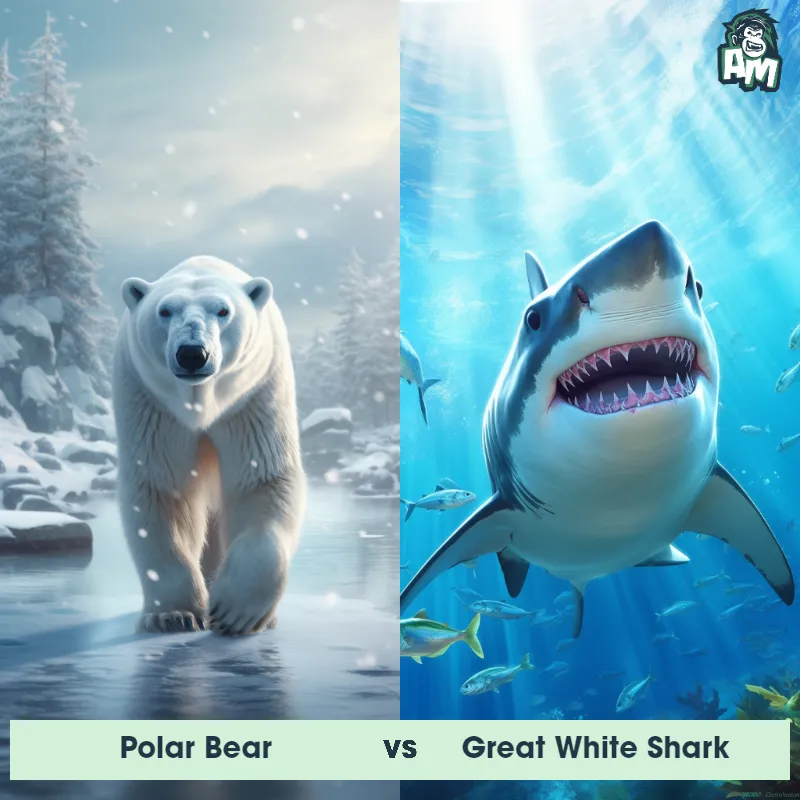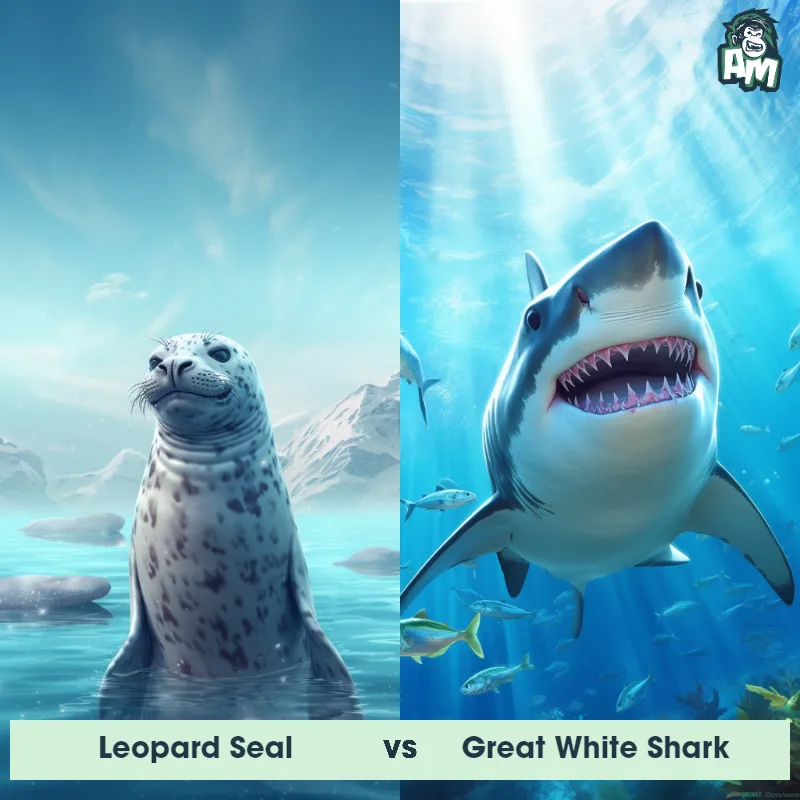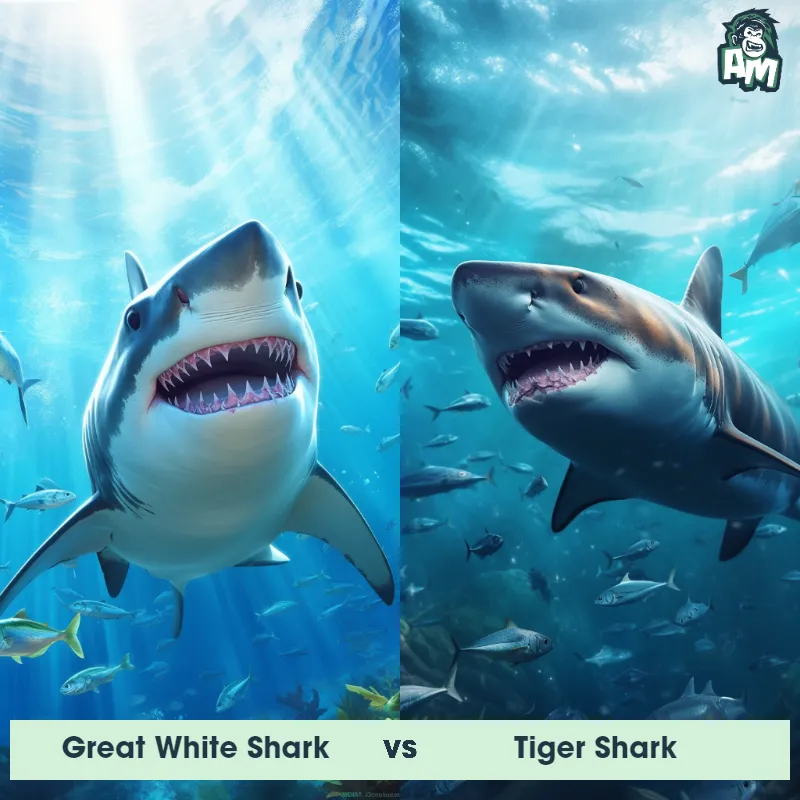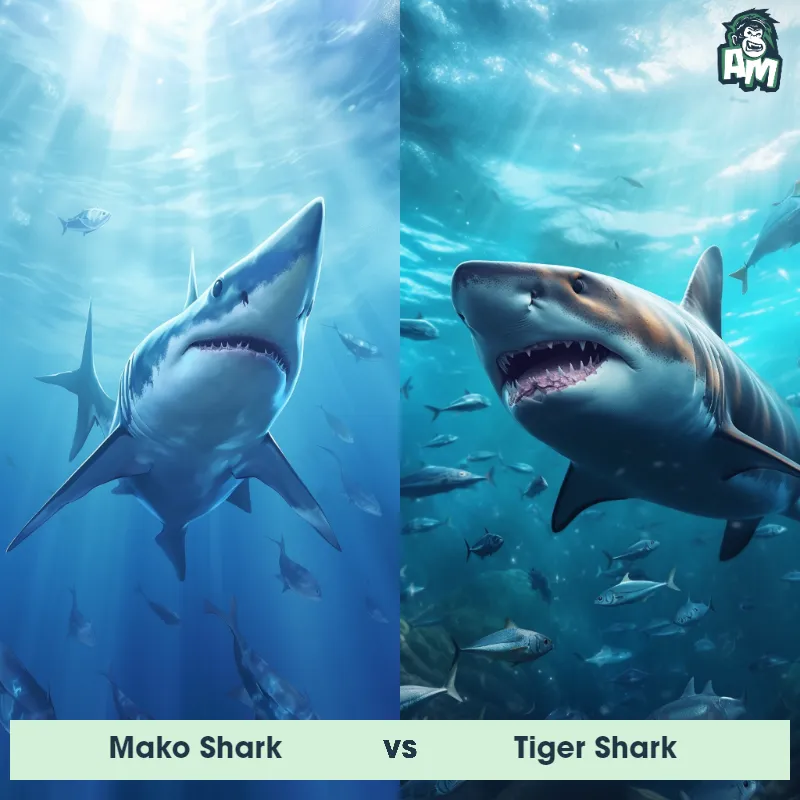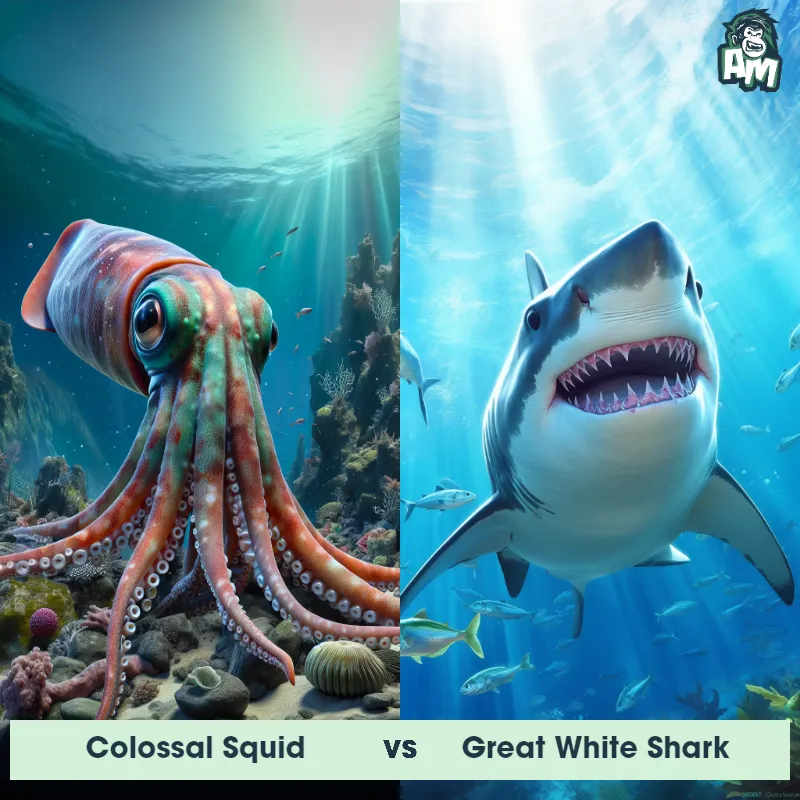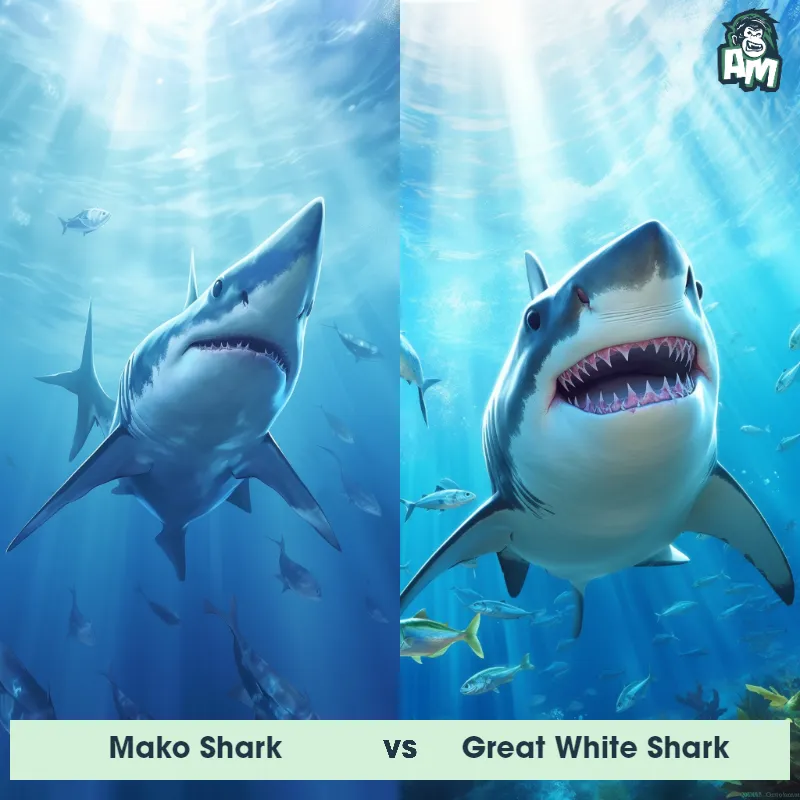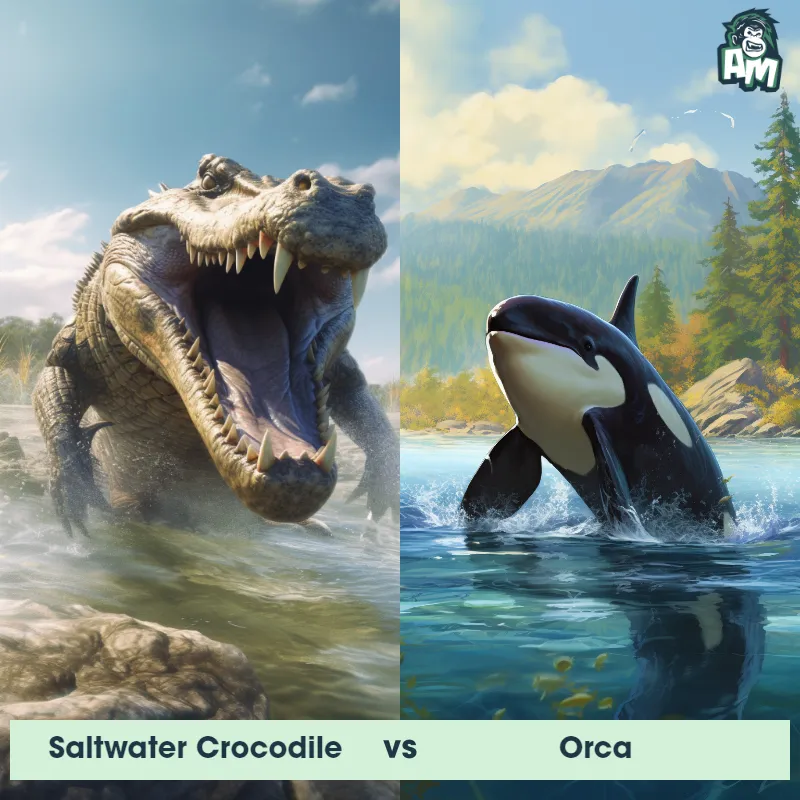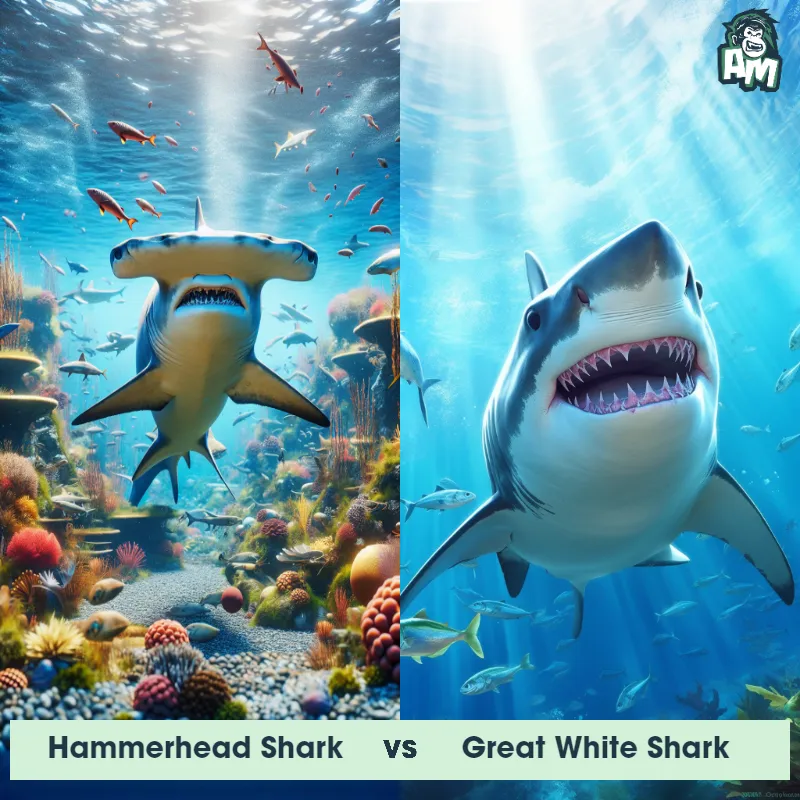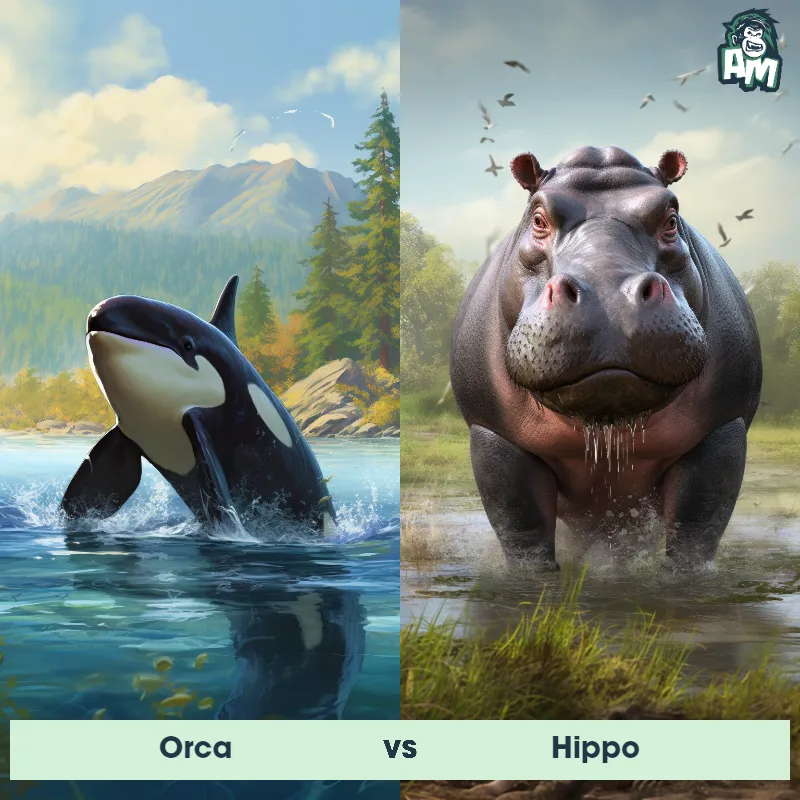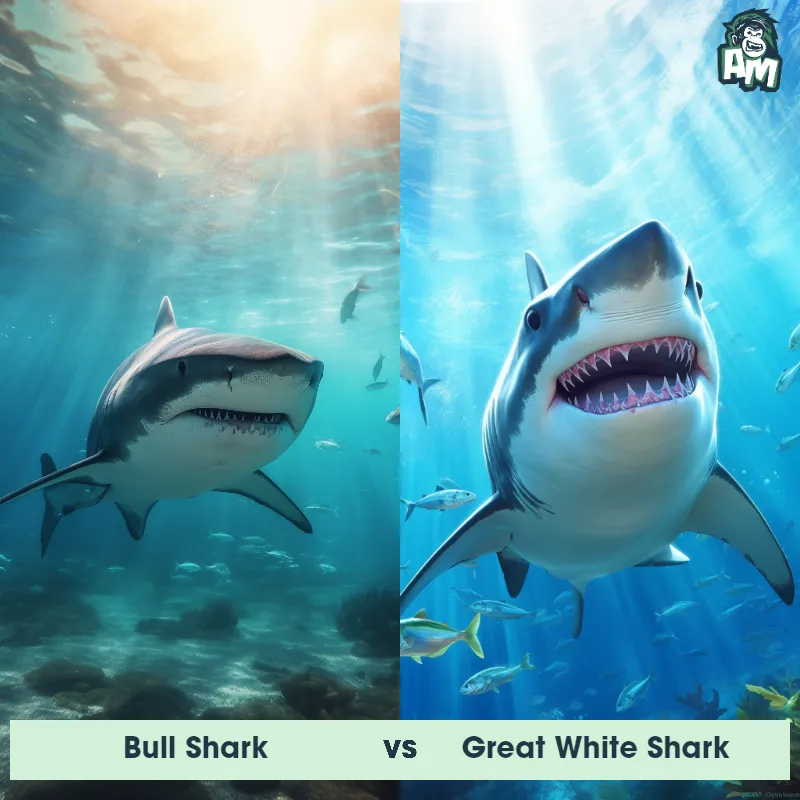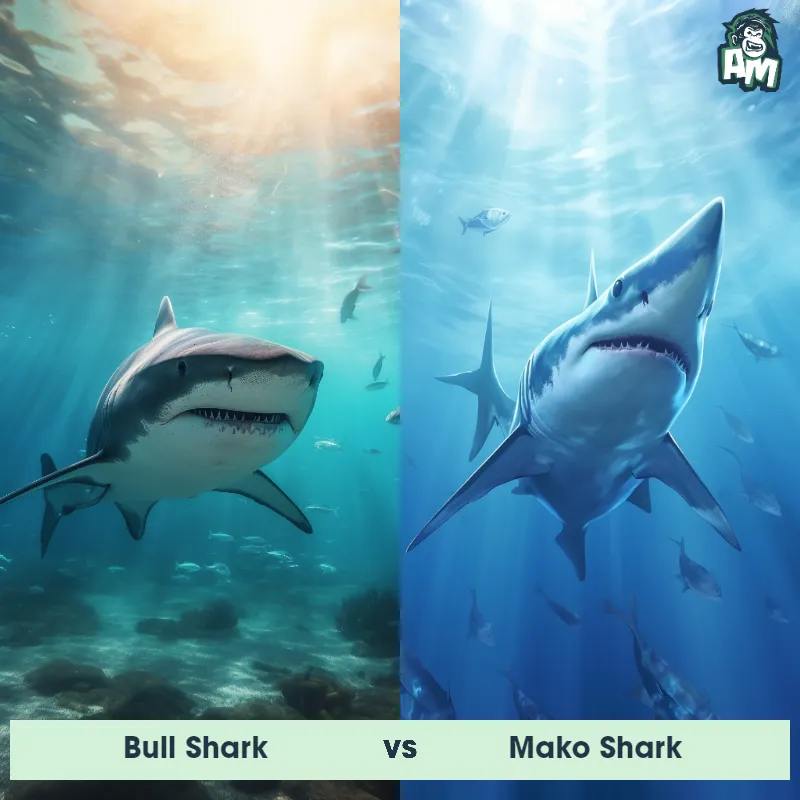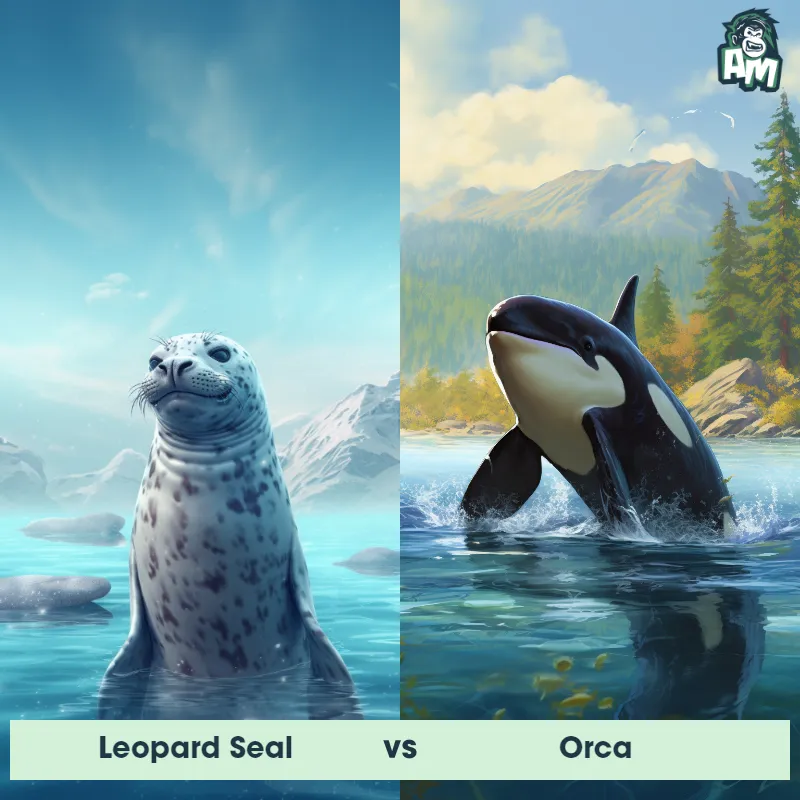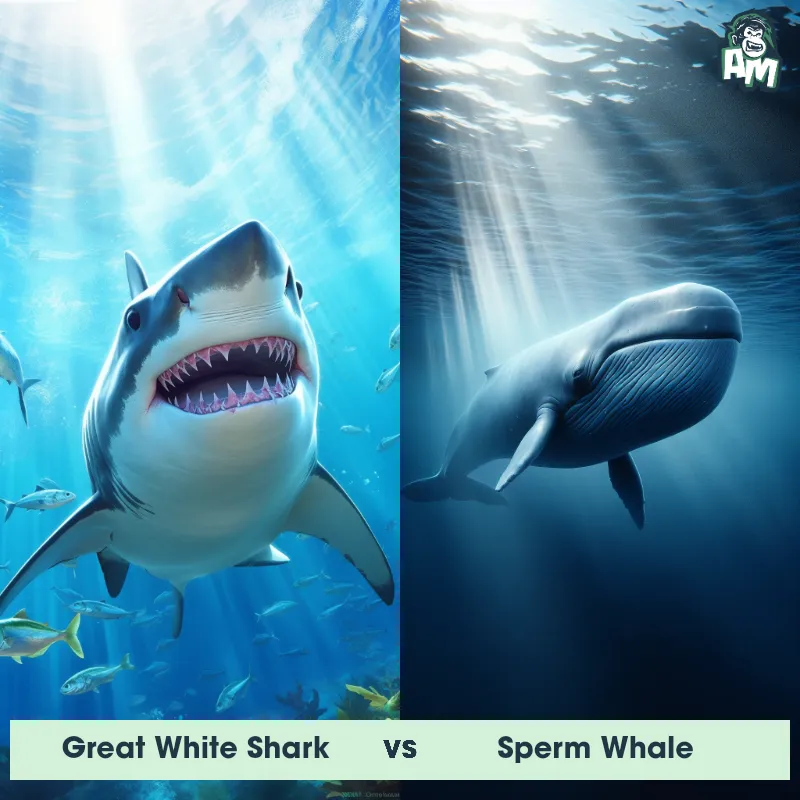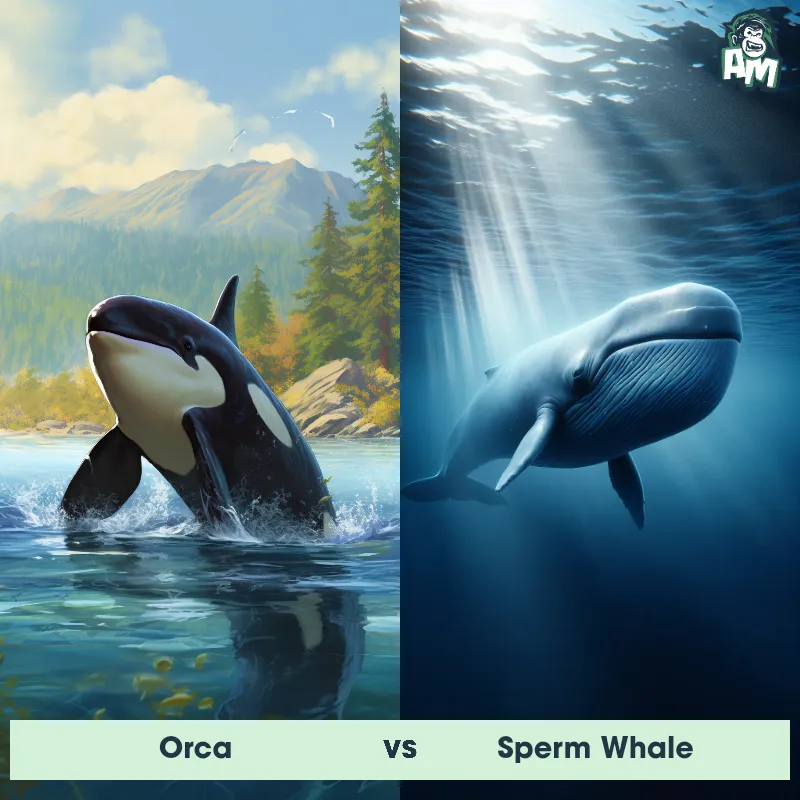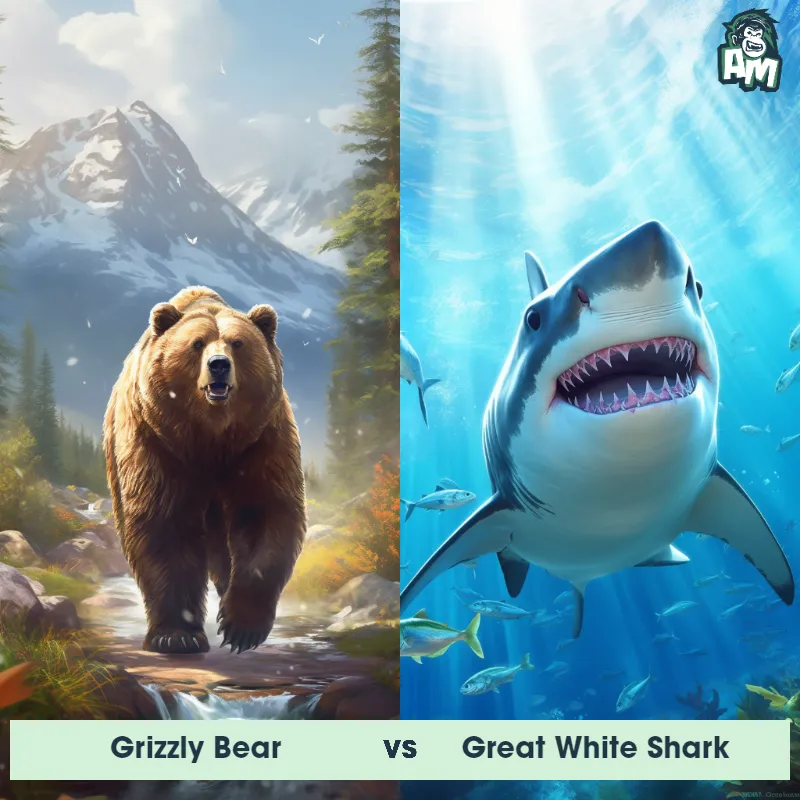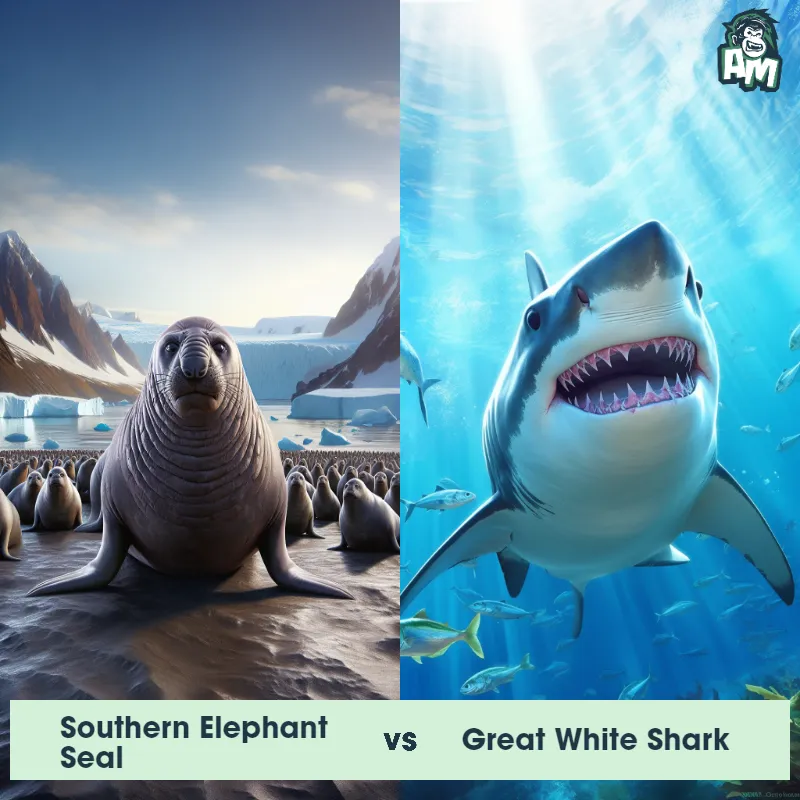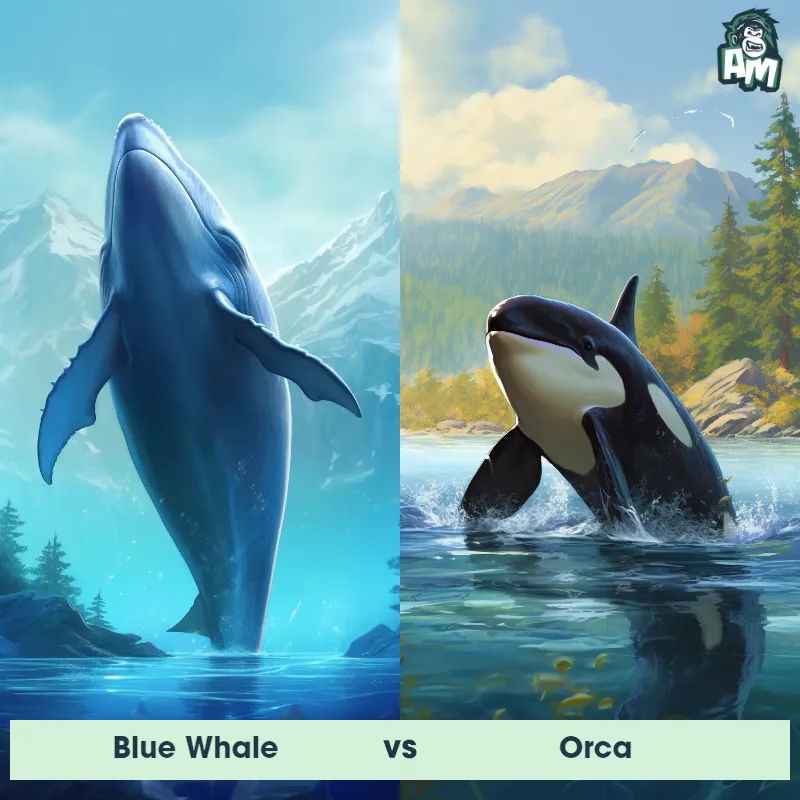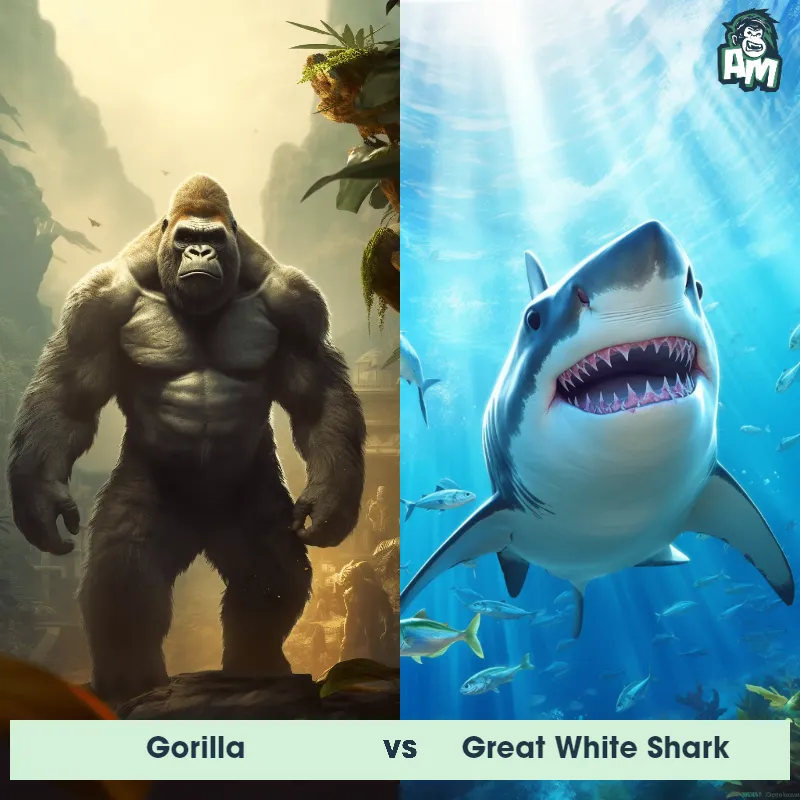Great White Shark vs OrcaSee Who Wins

Good evening, ladies and gentlemen, and welcome to this thrilling showdown between two marine titans! We are here tonight at the ultimate battleground for Animal Matchup, where jaws will clash and fins will make waves. Let's dive right into the action!
Contender 1: Great White Shark
The Great White Shark, also known as the white pointer or white death, is a large predatory fish that can grow up to 20 feet in length and weigh over 5,000 pounds. They have a distinctive torpedo-shaped body, grayish-brown skin, and rows of sharp teeth that can number up to 300. Great White Sharks are found in coastal waters all over the world and are known for their powerful jaws and ability to breach the surface of the water.
Fun Fact: Great White Sharks have a unique sense of smell that allows them to detect a single drop of blood in 25 gallons of water, which is equivalent to the size of an Olympic swimming pool.
Contender 2: Orca
The Orca, or killer whale, is a toothed whale belonging to the oceanic dolphin family. Known for their distinctive black-and-white coloration, orcas are among the most powerful predators on Earth. Adult males can grow up to 26 feet long and weigh up to six tons. They have a large dorsal fin, which in males can reach up to 6 feet in height. Orcas are found in oceans all over the world but are most common in the Arctic and the Antarctic. Their diet is diverse, including fish, seals, and even other whales.
Fun Fact: Orcas have a complex social structure, living in tight-knit family groups known as pods, and they are known to exhibit behaviors such as teaching, learning, cooperation, and grieving.
Matchup Stats
| Great White Shark | Orca | |
|---|---|---|
| Size | Up to 20 feet (6.1 meters) | Up to 26 feet long (7.9 meters) |
| Weight | Over 5,000 pounds (2,268 kilograms) | Up to 6 tons (5,443 kilograms) |
| Speed | Speed: 25 mph (40 km/hr) | 35mph (56km/h) |
| Key Strength | Powerful jaws and sharp teeth | Powerful predator with strong jaws and sharp teeth |
| Biggest Weakness | Vulnerable gills and eyes | Limited mobility on land |
Current Votes
Great White Shark vs Orca
See Who Wins
View More Matches
Looking For More?
Similar Matches
Scientific Stats
| Great White Shark | Orca | |
|---|---|---|
| Scientific Name | Carcharodon carcharias | Orcinus orca |
| Family | Lamnidae | Delphinidae |
| Habitat | Coastal waters | Oceans worldwide |
| Geography | Worldwide | Global, most common in Arctic and Antarctic |
| Diet | Carnivorous, primarily seals and sea lions | Fish, seals, and other whales |
| Lifespan | 70 years - 100 years | 50 years - 80 years |
Key Differences between Great White Shark and Orca
- Body Shape: The Great White Shark has a fusiform (tapered at both ends) and streamlined body with pointed snout, while the Orca has a stockier, robust body shape with a bulbous head and a more rounded snout.
- Coloration: The Great White Shark has a grayish-blue upper body and a white underbelly, providing a characteristic "counter-shading" coloration, whereas the Orca displays a striking black and white pattern with a white underside and a distinctive black saddle-like patch behind its dorsal fin.
- Dorsal Fin: The Great White Shark possesses a large, triangular dorsal fin that is more pronounced and erect, while the Orca has a curved, tall dorsal fin, often referred to as a "sickle-shaped" fin.
- Eye Placement: The Great White Shark has lateral placement of its eyes, located on the sides of its head, providing a wider field of view, whereas the Orca has eyes set more towards the front of the head, allowing for better depth perception.
- Teeth: The Great White Shark possesses large, serrated and triangular-shaped teeth up to 3 inches long, perfectly adapted for hunting and consuming prey, whereas the Orca possesses conical-shaped teeth that are larger, but not as sharp as the Great White's.
- Size: The Great White Shark is typically larger, reaching lengths of up to 20 feet, while the Orca, also known as the Killer Whale, can grow up to 32 feet long.



